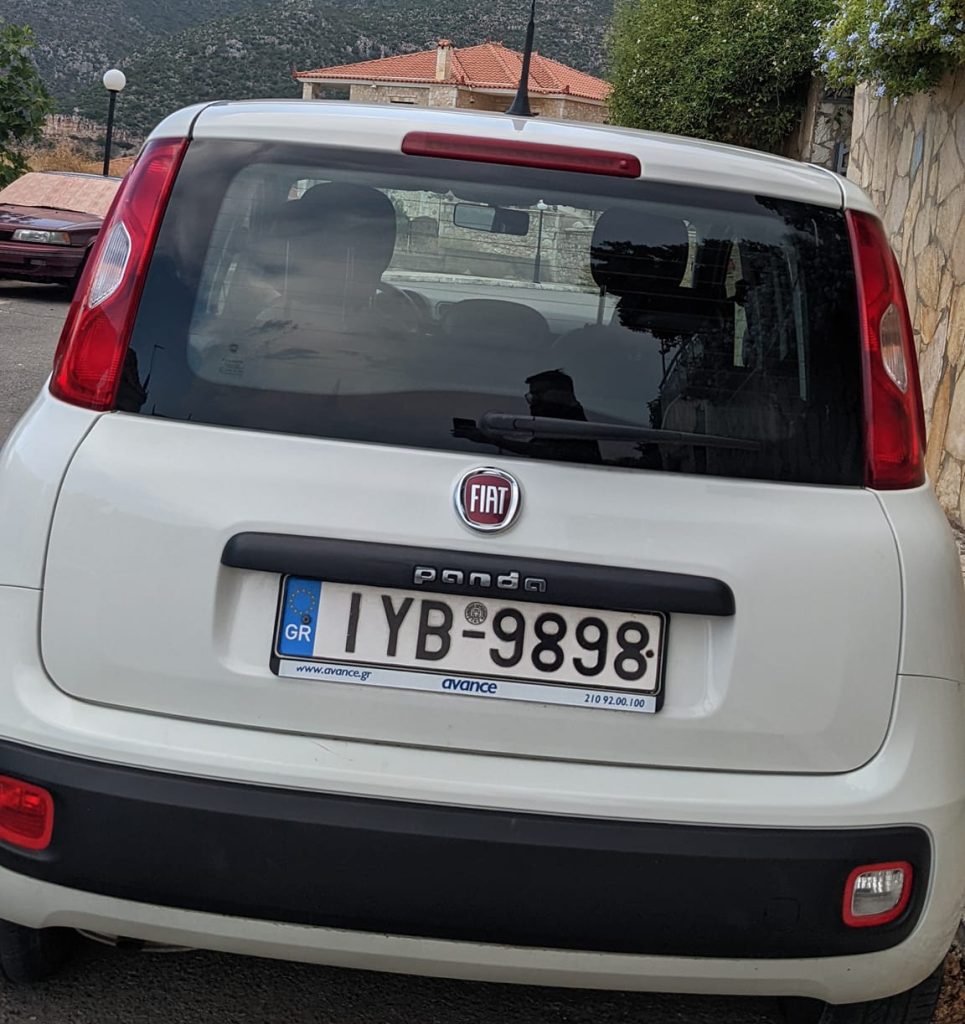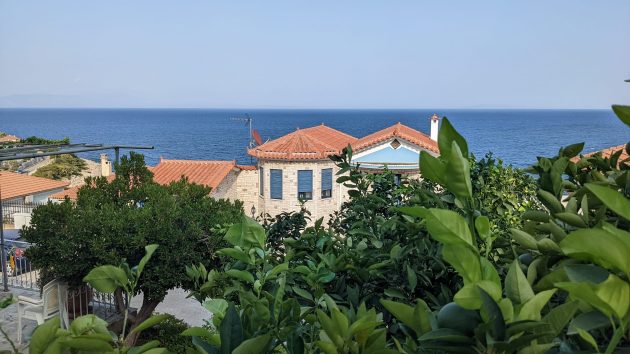

Columns/Blogs
Business Travel
Employee Vacation
Future of Work
Working Remotely
Putting the ‘Work from Anywhere’ philosophy to the test in the land of Socrates
September 6, 2022
By
Todd Humber
 The Parthenon at the Acropolis in Athens. Photo: Todd Humber
The Parthenon at the Acropolis in Athens. Photo: Todd Humber As the road rose sharply in front of me, the Fiat Panda began to sputter. I put my left foot down on the clutch and shifted from fourth to third as the engine roared and the climb resumed.
Well, roar isn’t quite right. It was more of a sigh and moan — Pandas have 1.0-litre, three-cylinder engines that crank out a measly 69 horsepower.
But this is a workplace publication, not an automotive magazine, so the zero to 60 times don’t matter. Here’s the one number you should care about: 8,091.
That’s the distance, in kilometers, I was from my regular office as I gripped the steering wheel of that unassuming tiny vehicle. Over the last two weeks, I did an extreme test drive of the “work from anywhere” philosophy in the land of Socrates.
The hills and turns I navigated in the white Panda were in the Peloponnese region of Greece. I learned a lot about what works, and doesn’t, while logging hours on another continent.
The good
The time zone difference was perfect. Greece runs seven hours ahead of Toronto, so if I fired up my laptop at 3 p.m. my colleagues in the Eastern time zone would just be finishing up their morning coffees.
That meant our mornings were completely free of work stresses.
While Canadians slept, we’d pilot the rented Panda into the seaside town of Paralios Astros, sipping Greek coffee under umbrellas as we stared out at the Aegean Sea.
As the thermometer crept towards the always predictable 36C, we’d claim our spot on the “organized” beach — pre set-up chairs with umbrellas that dot the Greek coasts and island. The only catch? You have to order a drink or two from the associated taverna during the course of the day.
By 2 p.m., the Greeks have all but disappeared. It’s too hot to do much, and most of the shops close down — so heading inside to check Outlook and post stories to Talent Canada doesn’t create any fear of missing out.
After a full day of work, the sun is gone — but the fun outside the office is just beginning.
The Greeks come out at night, after all, so heading down to the platia at 11 p.m. means you miss nothing. At that point, the grilled souvlaki, chilled Fix beer and oregano covered fries are just starting to flow from the kitchens.
The OK
My wife is Greek, and her parents own a house on the ocean. It’s on a remote archipelago, nearly a three-hour drive from Athens, filled with many Greek expats who were lured home from Canada, the U.K., the United States and Australia. It’s sort of like any rural Ontario community, just swap out the pine and maple groves for olive orchards and fig trees.
The Internet was acceptable. Not great, but passable. This isn’t a technology magazine either, but the nerd in me ran a speedtest on the WiFi when we arrived — and the in-laws Cosmote service was running about 18MB per second download and less than 1MB per second upload.
The upload speed caused me grief, as I spent a good part of this time working on multimedia files for the upcoming OHS Honours and Psychologically Safe Workplace Awards galas. Transferring gigabytes of video files over a snail-pace upload connection required a lot of patience and planning.
Zoom calls quickly changed from video to audio only, lest the dreaded “unstable connection” warning pop up.
For the most part, though, the technology worked well. For all my colleagues knew, I could have just as easily been in my basement. (But I was sure to remind them, as often as possible, that I wasn’t — we all get our turn in the sun, after all.)
The ugly
There was no true ugly, just a few oddities to adjust to in the Mediterranean.
For example, I’m addicted to a two-monitor setup. As a journalist, it’s much easier to work with multiple monitors when you’re writing and quoting sources.
I carefully packed a second monitor in my checked luggage and ensured there was a power transformer so Europe’s 230V power supply didn’t immediately fry it. But the HDMI cable didn’t work, so the monitor became nothing more than an oversized paperweight with a blue light.
Planning ahead is critical, because Greece isn’t flush with Best Buy and Staples.
In fact, they’re nowhere to be seen. Part of the charm of Greece is the lack of typical American-style megastores and chains, but it also means you need a local’s guiding hand to find almost anything, particularly outside of major cities.
The verdict
The pandemic has shown leaders that many jobs in the knowledge economy can truly be done anywhere.
Could I move to Greece tomorrow, permanently, and never miss a beat with my current job? No.
But it is completely feasible to keep the lights on remotely from anywhere, at least for a couple of weeks when the timing is right.
That opens the door to extended trips, with part of the time on vacation and part of it working remotely, a hugely valuable perk in the war for talent.
The battle over working remotely continues to rage on — with some employers being more aggressive in calling workers back to the office; and others seizing on that as an opportunity to highlight their openness to working from anywhere in an effort to recruit and retain the best.
This morning, I’m back at my office north of Toronto with blazing fast Internet and chain megastores as far as the eye can see.
But I’m also recharged, more tanned than usual and ready to drop gears from fourth to third and roar up the hill into the busy fall season.
And so very full of tzatziki.
Print this page



